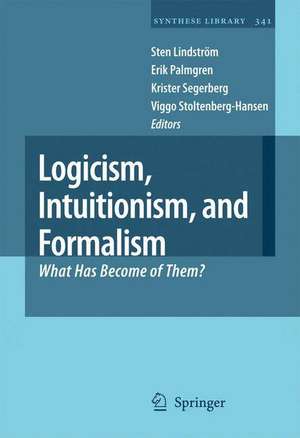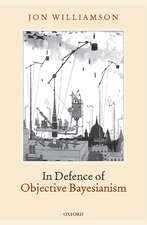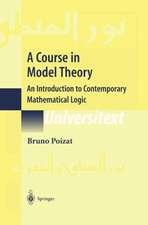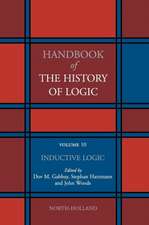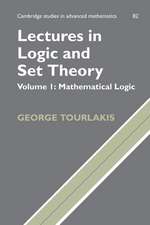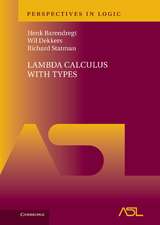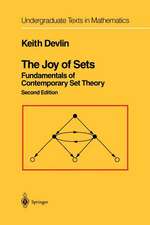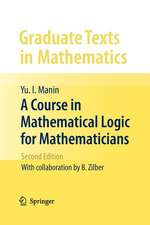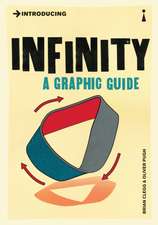Logicism, Intuitionism, and Formalism: What Has Become of Them?: Synthese Library, cartea 341
Editat de Sten Lindström, Erik Palmgren, Krister Segerberg, Viggo Stoltenberg-Hansenen Limba Engleză Hardback – 2 dec 2008
| Toate formatele și edițiile | Preț | Express |
|---|---|---|
| Paperback (1) | 1663.32 lei 6-8 săpt. | |
| SPRINGER NETHERLANDS – 28 oct 2010 | 1663.32 lei 6-8 săpt. | |
| Hardback (1) | 1669.65 lei 6-8 săpt. | |
| SPRINGER NETHERLANDS – 2 dec 2008 | 1669.65 lei 6-8 săpt. |
Din seria Synthese Library
- 15%
 Preț: 638.43 lei
Preț: 638.43 lei - 18%
 Preț: 989.98 lei
Preț: 989.98 lei - 15%
 Preț: 596.69 lei
Preț: 596.69 lei - 18%
 Preț: 903.93 lei
Preț: 903.93 lei - 15%
 Preț: 586.88 lei
Preț: 586.88 lei - 15%
 Preț: 696.50 lei
Preț: 696.50 lei - 18%
 Preț: 892.90 lei
Preț: 892.90 lei - 15%
 Preț: 643.34 lei
Preț: 643.34 lei -
 Preț: 282.33 lei
Preț: 282.33 lei - 5%
 Preț: 372.19 lei
Preț: 372.19 lei -
 Preț: 443.10 lei
Preț: 443.10 lei - 15%
 Preț: 637.59 lei
Preț: 637.59 lei - 18%
 Preț: 958.88 lei
Preț: 958.88 lei - 15%
 Preț: 642.36 lei
Preț: 642.36 lei - 18%
 Preț: 1230.66 lei
Preț: 1230.66 lei - 15%
 Preț: 642.83 lei
Preț: 642.83 lei - 18%
 Preț: 1000.39 lei
Preț: 1000.39 lei -
 Preț: 389.70 lei
Preț: 389.70 lei - 15%
 Preț: 637.28 lei
Preț: 637.28 lei - 18%
 Preț: 952.26 lei
Preț: 952.26 lei - 18%
 Preț: 1231.32 lei
Preț: 1231.32 lei - 15%
 Preț: 645.96 lei
Preț: 645.96 lei -
 Preț: 395.85 lei
Preț: 395.85 lei -
 Preț: 400.47 lei
Preț: 400.47 lei - 18%
 Preț: 1225.48 lei
Preț: 1225.48 lei - 15%
 Preț: 638.89 lei
Preț: 638.89 lei - 18%
 Preț: 1232.09 lei
Preț: 1232.09 lei -
 Preț: 380.45 lei
Preț: 380.45 lei -
 Preț: 394.87 lei
Preț: 394.87 lei - 15%
 Preț: 640.37 lei
Preț: 640.37 lei - 15%
 Preț: 639.08 lei
Preț: 639.08 lei -
 Preț: 381.98 lei
Preț: 381.98 lei - 15%
 Preț: 643.00 lei
Preț: 643.00 lei - 15%
 Preț: 672.29 lei
Preț: 672.29 lei
Preț: 1669.65 lei
Preț vechi: 2036.15 lei
-18% Nou
Puncte Express: 2504
Preț estimativ în valută:
319.57€ • 332.37$ • 267.80£
319.57€ • 332.37$ • 267.80£
Carte tipărită la comandă
Livrare economică 13-27 martie
Preluare comenzi: 021 569.72.76
Specificații
ISBN-13: 9781402089251
ISBN-10: 1402089252
Pagini: 524
Ilustrații: XII, 512 p.
Dimensiuni: 156 x 235 x 29 mm
Greutate: 0.91 kg
Ediția:2009
Editura: SPRINGER NETHERLANDS
Colecția Springer
Seria Synthese Library
Locul publicării:Dordrecht, Netherlands
ISBN-10: 1402089252
Pagini: 524
Ilustrații: XII, 512 p.
Dimensiuni: 156 x 235 x 29 mm
Greutate: 0.91 kg
Ediția:2009
Editura: SPRINGER NETHERLANDS
Colecția Springer
Seria Synthese Library
Locul publicării:Dordrecht, Netherlands
Public țintă
ResearchCuprins
Introduction: The Three Foundational Programmes.- Introduction: The Three Foundational Programmes.- Logicism and Neo-Logicism.- Protocol Sentences for Lite Logicism.- Frege’s Context Principle and Reference to Natural Numbers.- The Measure of Scottish Neo-Logicism.- Natural Logicism via the Logic of Orderly Pairing.- Intuitionism and Constructive Mathematics.- A Constructive Version of the Lusin Separation Theorem.- Dini’s Theorem in the Light of Reverse Mathematics.- Journey into Apartness Space.- Relativization of Real Numbers to a Universe.- 100 Years of Zermelo’s Axiom of Choice: What was the Problem with It?.- Intuitionism and the Anti-Justification of Bivalence.- From Intuitionistic to Point-Free Topology: On the Foundation of Homotopy Theory.- Program Extraction in Constructive Analysis.- Brouwer’s Approximate Fixed-Point Theorem is Equivalent to Brouwer’s Fan Theorem.- Formalism.- “Gödel’s Modernism: On Set-Theoretic Incompleteness,” Revisited.- Tarski’s Practice and Philosophy: Between Formalism and Pragmatism.- The Constructive Hilbert Program and the Limits of Martin-Löf Type Theory.- Categories, Structures, and the Frege-Hilbert Controversy: The Status of Meta-mathematics.- Beyond Hilbert’s Reach?.- Hilbert and the Problem of Clarifying the Infinite.
Notă biografică
Sten Lindström is Professor of Philosophy at Umeå University and has been a Research Fellow at the Swedish Collegium for Advanced Study (SCAS). He has published papers on intensional logic, belief revision and philosophy of language, and co-edited the books Logic, Action and Cognition: Essays in Philosophical Logic (Kluwer, 1997) and Collected Papers of Stig Kanger with Essays on his Life and Work, I-II (Kluwer, 2001).
Erik Palmgren is Professor of Mathematics at Uppsala University. His research interests are mainly mathematical logic and the foundations of mathematics. He is presently working on the foundational programme of replacing impredicative constructions by inductive constructions in mathematics, with special emphasis on point-free topology and topos theory.
Krister Segerberg is Emeritus Professor of Philosophy at Uppsala University and the University of Auckland. He is the author of papers in modal logic, the logic of action, belief revision and deontic logic, as well as the books An Essay in Classical Modal Logic (1971) and Classical Propositional Operators: An Exercise in the Foundations of Logic (1982).
Viggo Stoltenberg-Hansen is professor of Mathematical Logic at Uppsala University. His main interests include computability and constructivity in mathematics.
Erik Palmgren is Professor of Mathematics at Uppsala University. His research interests are mainly mathematical logic and the foundations of mathematics. He is presently working on the foundational programme of replacing impredicative constructions by inductive constructions in mathematics, with special emphasis on point-free topology and topos theory.
Krister Segerberg is Emeritus Professor of Philosophy at Uppsala University and the University of Auckland. He is the author of papers in modal logic, the logic of action, belief revision and deontic logic, as well as the books An Essay in Classical Modal Logic (1971) and Classical Propositional Operators: An Exercise in the Foundations of Logic (1982).
Viggo Stoltenberg-Hansen is professor of Mathematical Logic at Uppsala University. His main interests include computability and constructivity in mathematics.
Textul de pe ultima copertă
The period in the foundations of mathematics that started in 1879 with the publication of Frege's Begriffsschrift and ended in 1931 with Gödel's Über formal unentscheidbare Sätze der Principia Mathematica und verwandter Systeme I can reasonably be called the classical period. It saw the development of three major foundational programmes: the logicism of Frege, Russell and Whitehead, the intuitionism of Brouwer, and Hilbert's formalist and proof-theoretic programme. In this period, there were also lively exchanges between the various schools culminating in the famous Hilbert-Brouwer controversy in the 1920s.
The purpose of this anthology is to review the programmes in the foundations of mathematics from the classical period and to assess their possible relevance for contemporary philosophy of mathematics. What can we say, in retrospect, about the various foundational programmes of the classical period and the disputes that took place between them? To what extent do the classical programmes of logicism, intuitionism and formalism represent options that are still alive today? These questions are addressed in this volume by leading mathematical logicians and philosophers of mathematics.
The volume will be of interest primarily to researchers and graduate students of philosophy, logic, mathematics and theoretical computer science. The material will be accessible to specialists in these areas and to advanced graduate students in the respective fields.
The purpose of this anthology is to review the programmes in the foundations of mathematics from the classical period and to assess their possible relevance for contemporary philosophy of mathematics. What can we say, in retrospect, about the various foundational programmes of the classical period and the disputes that took place between them? To what extent do the classical programmes of logicism, intuitionism and formalism represent options that are still alive today? These questions are addressed in this volume by leading mathematical logicians and philosophers of mathematics.
The volume will be of interest primarily to researchers and graduate students of philosophy, logic, mathematics and theoretical computer science. The material will be accessible to specialists in these areas and to advanced graduate students in the respective fields.
Caracteristici
Contains essays by world-leading experts in the philosophy and foundations of mathematics, describing current developments in the foundations of mathematics in a historical perspective Analyses the classical philosophical and foundational views of Frege, Brouwer, Hilbert, Gödel and Tarski and examines their relevance for current developments Provides an in-depth analysis of various kinds of neologicist philosophies of mathematics Contains a comprehensive section on mathematical intuitionism and constructive mathematics Offers extensive discussions, by several authors, of the proof-theoretic programme of Hilbert and Bernays
